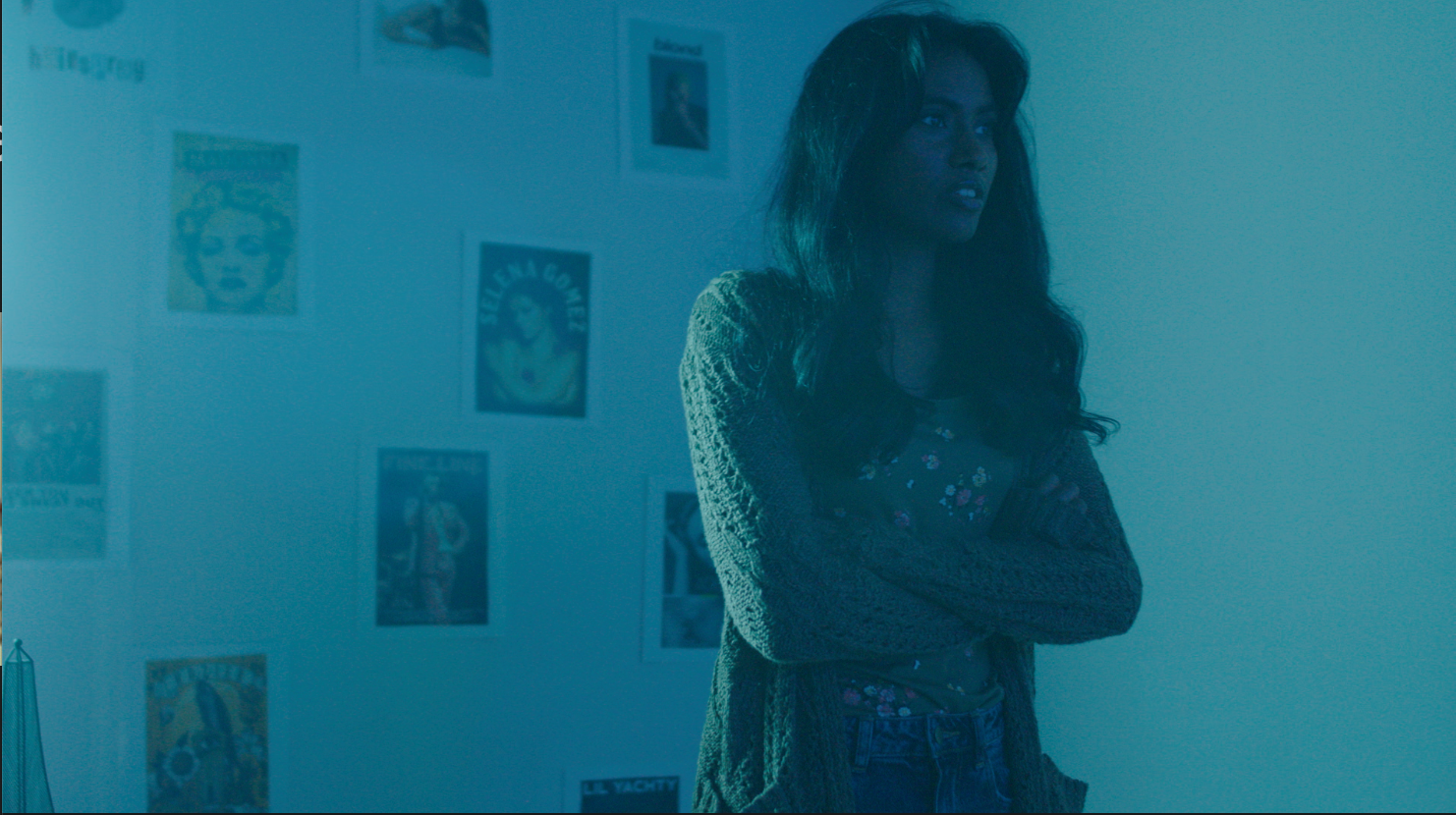CHRYSALIS (2024)
A spoiler-free review by Kraken Film Reviews
-
Arantxa Ibarra & Naz Tokgoz
-
Naz Tokgoz
-
USA, Turkey
-
Paul-Lou Lemiux
Mete Gultiken
Naz Tokgoz -
18 minutes
-
Romance, Drama, LGBTQ
The short film starts off strong. Our story begins with a powerful detail of a young woman who appears to be shaken and sad, you wonder what’s going on with her.
You can feel like you’re already drawn into the story, because it feels like she’s hiding something, despite her emotions are etched not only on her face but in the air around her.There’s a strong conveyance of emotion, driven by an evidently intense — but never over the top — performance.
The trick to delivering an intense performance often lies in the balance between expression and restraint.
Actors can sometimes fall into the trap of over-exaggerating their emotions, attempting to convey strong feelings in a way that comes across as forced or over-the-top.
They try to "show" those emotions, rather than "conveying" them to the spectator, and as you watch them, you can feel how they try to make the scene appear so “strong”, that they're not really believing in what the character is saying. This can lead to a portrayal that feels exaggerated and ultimately feel “off” to the audience.
In this case, however, our protagonist masterfully balances and conveys deep emotions throughout the entire duration of the short, without ever crossing that line into excess. Each scene is dense yet authentic, allowing her performance to come out as genuine but realistic. This approach makes her portrayal not only effective but also impactful and memorable.
Our young protagonist goes through an incessant russian roulette of emotions throughout the entire movie, and you can buy every minute of it.

It becomes clear that this which we are watching is our heroine, the young Deniz—a fragile soul swept up in an inner, dense chaos.
“Chrysalis” is a short film that explores themes of love and community in Istanbul, “a city that is both beautiful and complex”, as the directors, Arantxa Ibarra and Naz Tokgoz, say. It's a co-production that was produced between New York (USA) and Turkey.

It becomes clear that this which we are watching is our heroine, the young Deniz—a fragile soul swept up in an inner, dense chaos.
“Chrysalis” is a short film that explores themes of love and community in Istanbul, “a city that is both beautiful and complex”, as the directors, Arantxa Ibarra and Naz Tokgoz, say. It's a co-production that was produced between New York (USA) and Turkey.
You can feel like the adventure that she’s about to start is internal, not external. She’ll probably go somewhere significant, probably, but the route will only be inward, deeper, and darker. Question is: can we accept the challenge?
The delightful undertone of the music, mixed with an impeccable cinematography seems to reply for yourself, not leaving you much of a choice: yes, we’re ready to go on this journey with her.
The film then transitions to a second scene, where our young protagonist, Deniz, interacts with a peer, Melisa.
There’s a little game that is played around the concept of “traveling”. The two girls discuss travelling to and travelling from, and it is palpable how the conversation is concerning both the physical travel and then the spiritual/inner journey.
When asked where the protagonist, the young Deniz, comes from, she genuinely replies that she’s from space, a galaxy “far far away”. Despite the smiles and her big, shiny eyes, you start to understand how she’s not talking about her body, rather her different nature. She’s both confessing that she doesn’t feel like everyone else, and is hinting a cry for help at the same time.
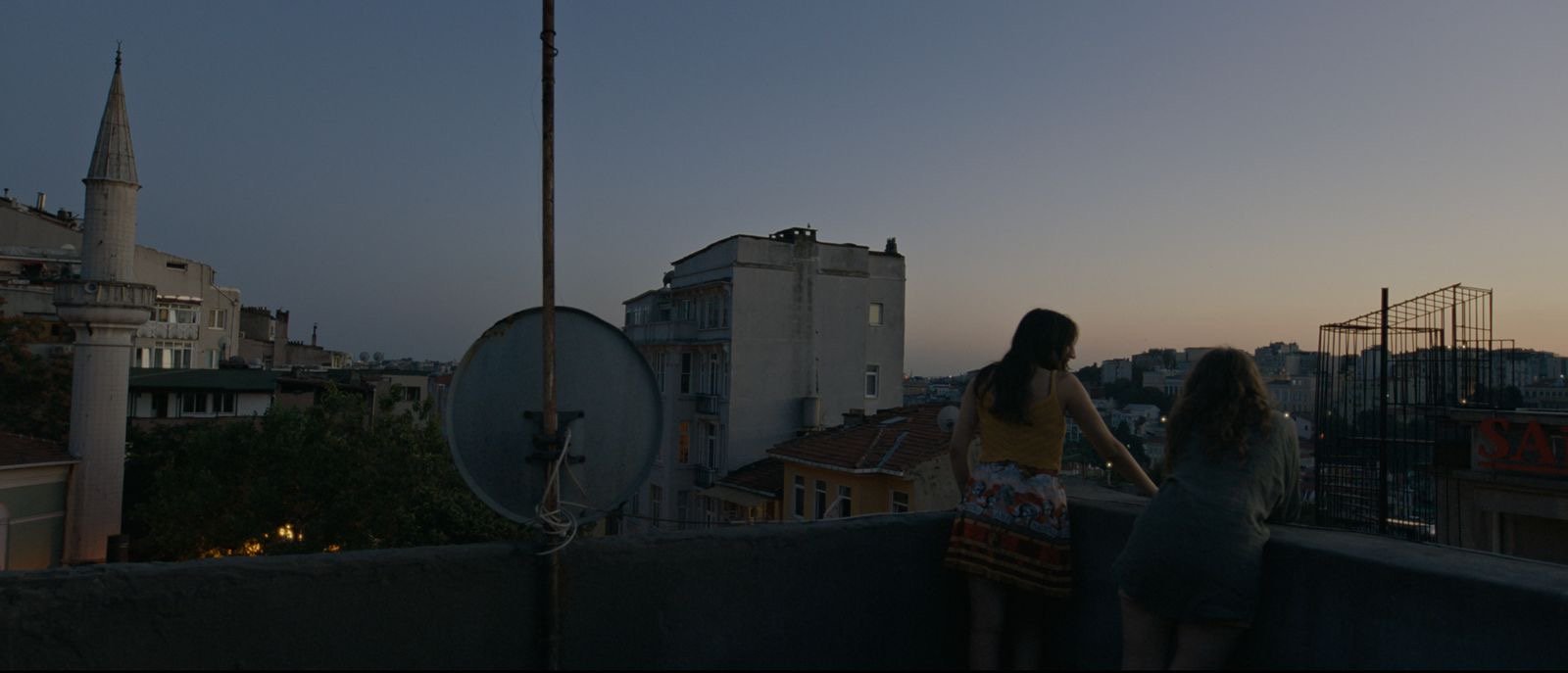
You can tell, she wishes to be “normal”, a “human” like everybody else, let’s say, but she simply can’t: she doesn’t feel like it.
“Will you help me fit, or will you accept me for who I am — as an “alien”?”. This is the question that her happy face, and her shy glances that keep repeatedly falling down, hide. What will the answer to that hidden question be?
The editing is excellent, it adds the right balance and diversity, pairing some creative shots together that keep following the original and poetic tone of the story.
The short film excels in several technical aspects, showcasing great sound design that enhances the overall atmosphere, nicely wrapped and welcomed by a delicate and effective soundtrack.
But in this short about love and conflicts set in Turkey, there's also another character that shine though: a middle-aged woman which we can call "the mother".
"The mother" is a conflicted woman with a strong internal conflict and ambivalence.
In the way she first presents herself, she appears bigoted and almost two-dimensional, as if she has no personality of her own and is blindly subject to the fanaticism and conventions she grew up with. As a mother, she could have learned to accept her daughter as she is, or at the very least, kept her secret from the father—but instead, she chooses to expose her daughter and confess everything, even though she wasn’t obliged to.

What initially seems like a character lacking the slightest sense of empathy or depth later reveals itself to have a hidden and buried complexity. Her repressed anger and fervor make her a character for whom one can feel a strange kind of sympathy.
The line she uses to begin a memorable mologue, demonstrates this depth.
She asks, “Where did you learn to love?” This is a powerful phrase and a question that not only cuts to the core of the situation—the concept of pure love—but skips over the main issue of homosexuality. A more superficial woman might have started the conversation by focusing on the topic of homosexuality, asking questions like, “When did you realize you were gay?”, or alternatively, “What did you see in her?”
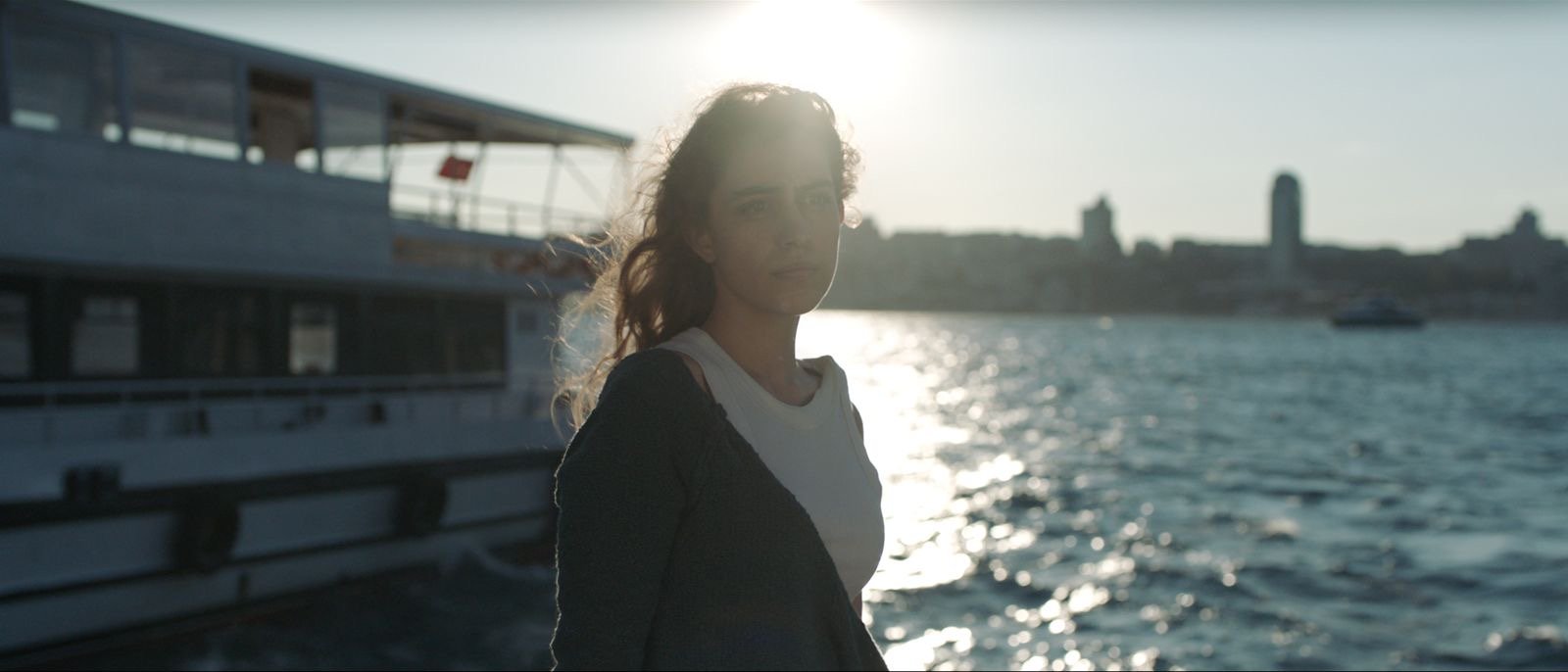
“Where did you learn to love?” is a phrase centered on the universal concept of love and therefore reveals that the mother may or may not have moved beyond the “problem” of homosexuality.
The phrase itself also betrays a certain hidden naivety, not only because—by speaking of love—the mother draws a comparison between herself and her younger self, harking back to a carefree and innocent time in her childhood, but also because it hints at a faint curiosity, so to speak. It reflects a real interest, ignorance, and perhaps, jealousy, as if, deep down, she too wants to know how to love with that same spontaneity, which is something she certainly always struggled with.
Talking about herself as a child while referring to love, also reveals how lonely and miserable her life has been over the years, since she has no recent memories of true love.
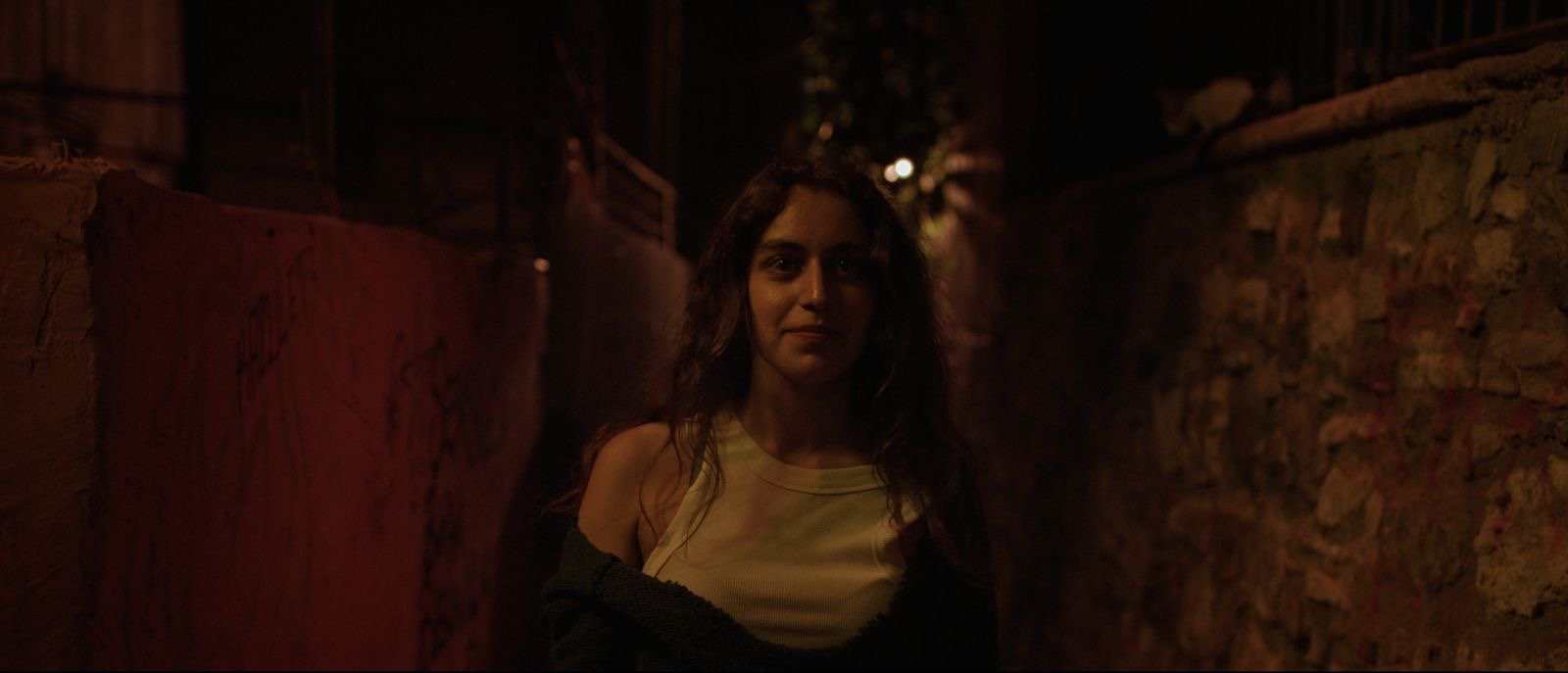
This short film unfolds like a delicate tapestry, woven with threads of introspection. It boasts a bold yet subtle direction, skillfully balancing clarity with an emotional depth that lingers long after the credits roll. The performances are nothing short of remarkable, with Naz Tokgoz—also co-director alongside Arantxa Ibarra—delivering a portrayal that is intense yet profoundly genuine.
“Chrysalis” feels beautifully complete, painting a vivid picture of a reality that often remains in the shadows: being a girl who loves another girl, in Turkey. The story and screenplay is also so vivid that you kind of start to wonder whether this is a real-event-inspired story or not. We should talk to the directors to find out!
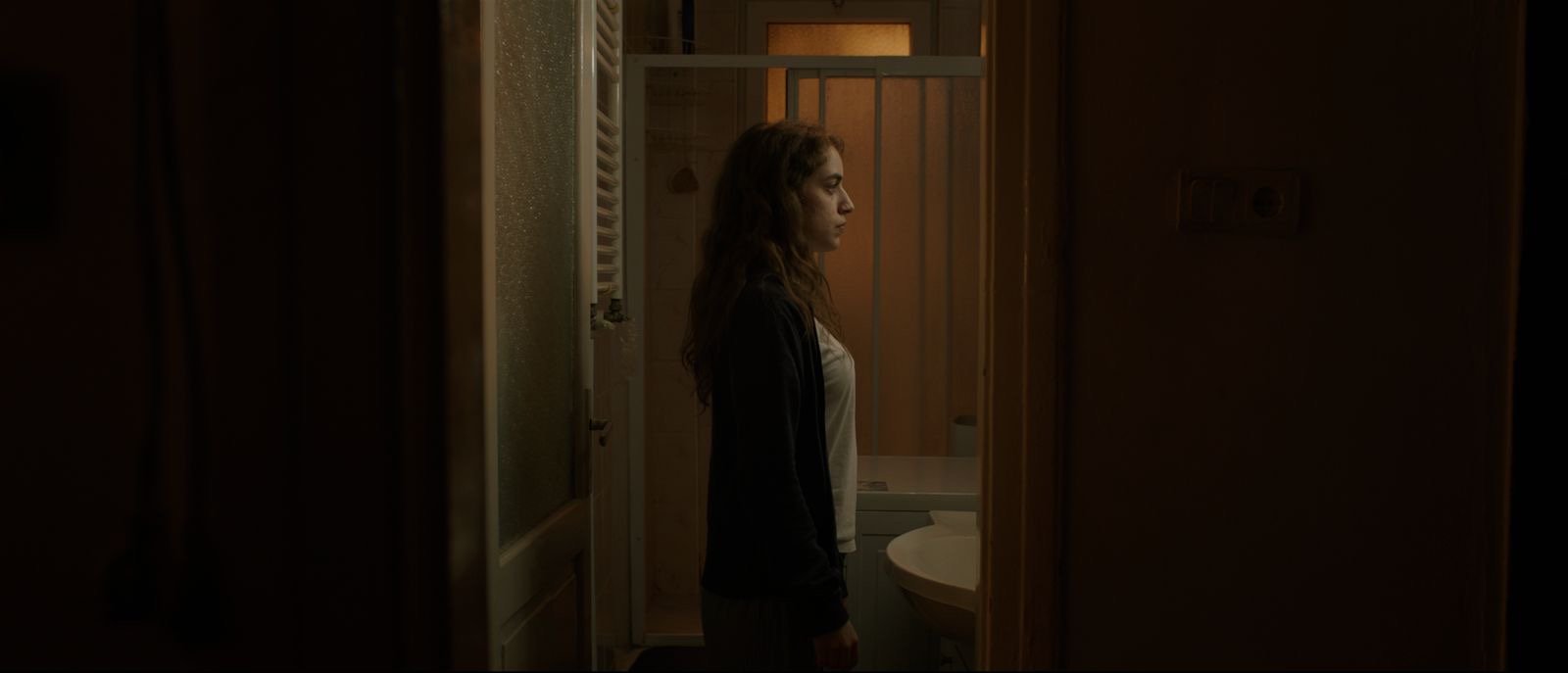
The creators describe their work as a "passion project brought to life on a very limited budget", but upon watching it, it definitely doesn’t feel budget restricted: the film radiates an energy that belies any of the challenges the team faced while shooting between two countries: Turkey and the United States. This speaks volumes about the commitment of the entire team, who have crafted something truly special.
It all started off as a thesis project in NYC - as the directors say - but who knows where this short could go? In a galaxy far, far away? Perhaps, but what we are sure of, is that “Chrysalis” will journey across this globe, celebrated for its authenticity!
“It is not a lack of love, but a lack of friendship that makes unhappy marriages.”
Discover more reviews:
“The Sisters of Briar Glen”
When four freshman girls at an elite college begin investigating their professor’s mysterious death, they uncover far more than they bargained for.
“Without You”
Hannah and Al are a couple deeply entwined in love, yet fate deals them a difficult hand as they grapple with profound emotional conflict.





